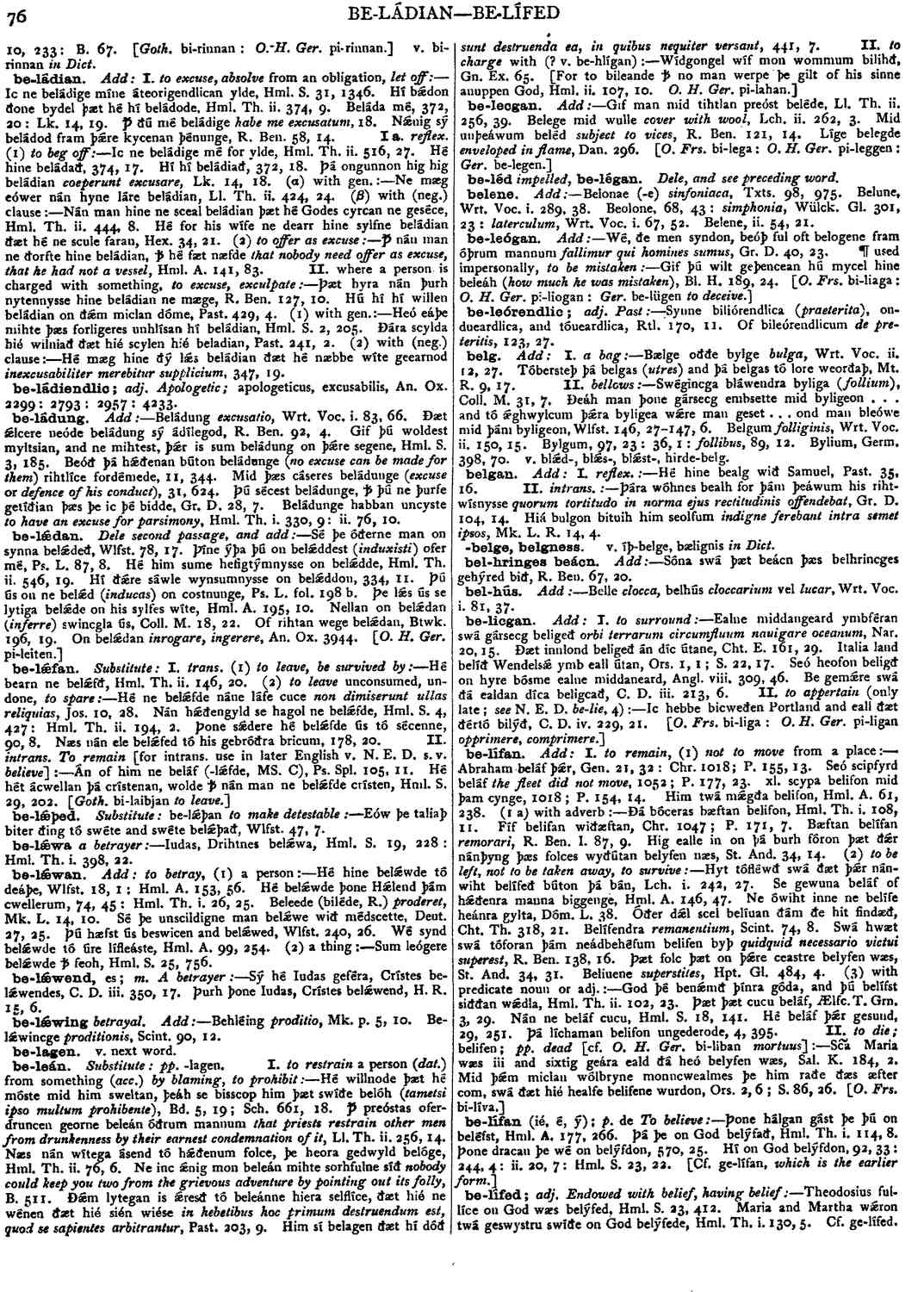be-lífan
-
Abraham beláf þǽr,
- Gen. 21, 32: Chr. 1018; P. 155, 13.
-
Seó scipfyrd beláf
the fleet did not move,
- 1052; P. 177, 23. xl.
-
Him twá mǽgða belifon,
- Hml. A. 61, 238. (1 a) with adverb :-- Ðá
-
Fíf belifan wiðæftan,
- Chr. 1047; P. 171, 7.
-
Bæftan belífan
remorari,
- R. Ben. 1. 87, 9.
-
Hig ealle in on þá burh fóron þæt ðǽr nánþyng þæs folces wyðútan belyfen næs,
- St. And. 34, 14.
-
Hyt tófléwð swá ðæt þǽr nánwiht belífeð búton þá bán,
- Lch. i. 242, 27.
-
Se gewuna beláf of hǽðenra manna biggenge,
- Hml. A. 146, 47.
-
Ne ówiht inne ne belífe heánra gylta,
- Dóm. L. 38.
-
Oðer dǽl scel belíuan ðám ðe hit findæð,
- Cht. Th. 318, 21.
-
Belífendra
remanentium,
- Scint. 74, 8.
-
Swá hwæt swá tóforan þám neádbehéfum belifen byþ
quidquid necessario victui superest,
- R. Ben. 138, 16.
-
Þæt folc þæt on þǽre ceastre belyfen wæs,
- St. And. 34, 31.
-
Beliuene
superstites,
- Hpt. Gl. 484, 4.
-
God þé benǽmð þínra góda, and þú belífst siððan wǽdla,
- Hml. Th. ii. 102, 23.
-
Þæt þæt cucu beláf,
- Ælfc. T. Grn. 3, 29.
-
Nán ne beláf cucu,
- Hml. S. 18, 141.
-
Hé beláf þǽr gesund,
- 29, 251.
-
Þá líchaman belifon ungederode,
- 4, 395.
-
Sc̃a Maria wæs iii and sixtig geára eald ðá heó belyfen wæs,
- Sal. K. 184, 2.
-
Mid þǽm miclan wólbryne monncwealmes þe him raðe ðæs æfter com, swá ðæt hié healfe belifene wurdon,
- Ors. 2, 6; S. 86, 26.
Bosworth, Joseph. “be-lífan.” In An Anglo-Saxon Dictionary Online, edited by Thomas Northcote Toller, Christ Sean, and Ondřej Tichy. Prague: Faculty of Arts, Charles University, 2014. https://bosworthtoller.com/39894.
Checked: 0